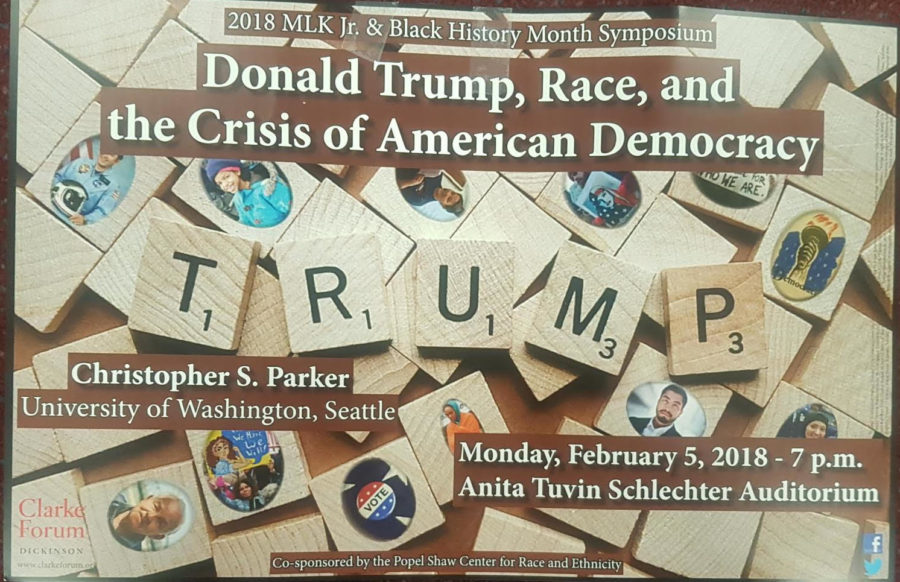Speaker Claims Racism Influenced Trump Voters
Professor Christopher S. Parker, from the University of Washington, Seattle claimed in a Clarke Forum event that electors who voted for President Trump were largely influenced by feelings of racism and sexism, rather than economic anxiety. The professor also argued that the Democratic Party should shift its approach from a class-based one to one grounded more in identity politics.
Parker drew a conceptual line between establishment conservatives, whom Parker characterized as pragmatic, viewing their political opponents as just opponents, and willing to accept incremental change, and reactionary conservatives, whom he described as viewing their political opponents as the enemy and preferring to roll back change rather than accept it slowly.
He also addressed the idea that change, especially increasing racial diversity, in America is portrayed to and seen by some whites as an existential threat. In response to this, Parker argued that to many, Trump represents the “great white hope,” what Parker called “the last guardian of the ramparts against a changing America.” Parker traced these two concepts through American history, beginning with the Know-Nothing Party that opposed immigration from Southern Europe, through the Klu Klux Klan, who opposed racial equality, to the modern Tea Party and Trump movements.
In his research, Parker focused mainly on the reactions between white voters and people of color to various statements and categories. Parker and his colleagues focused on modelling cultural threat for both groups, and their results showed several categories, which influenced whites who voted for Trump.
Among these were an affinity for the Tea Party, a conservative ideology, and, what Parker characterized as, strong racist, sexist, and ethnocentrist feelings. In his research, the professor found that feelings about government size, economic anxiety, and a Christian identity had little bearing on likeliness to support Trump. Parker also studied the likeliness to take certain political actions, such as protesting, as a result of Trump’s influence amongst white supporters and people of color, and concluded that Trump was better able to mobilize his supporters for activism, although he did motivate people of color to both vote and participate in protests.
Claire MacAulay ’20, said that “Parker came across as relatable, and easy to listen to,” adding that she “felt really engaged throughout the presentation.” MacAulay echoed these sentiments, saying “I personally felt like he was being clear with us, rather than trying to come at the issues he talked about like he didn’t have an opinion.”
Kevin Ssonko ’20 found Parker to be “one of the most engaging and challenging” Clarke Forum speakers he has encountered. “While I disagree with his conclusions, I do see his arguments and they are compelling,” he said. “Despite my disagreements with him, I will think about his conclusions long into the future.”
Janel Pineda ’18 found the presentation “an interesting insight that presented data on how exactly race and racism played a role in this past election.”
Sam Weisman ’18 was impressed with the way Parker “took statistics and energized them with a forceful and controversial stage presence. The presentation cut through speculative discourse to support an election narrative with evidence drawn back through history.”
Parker spoke on Monday, Feb. 5.





